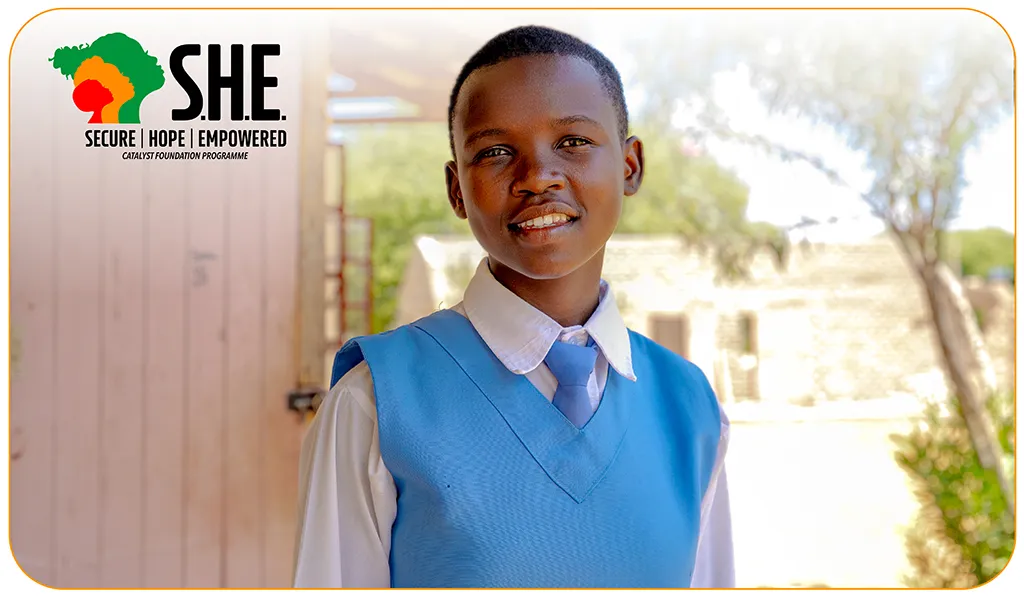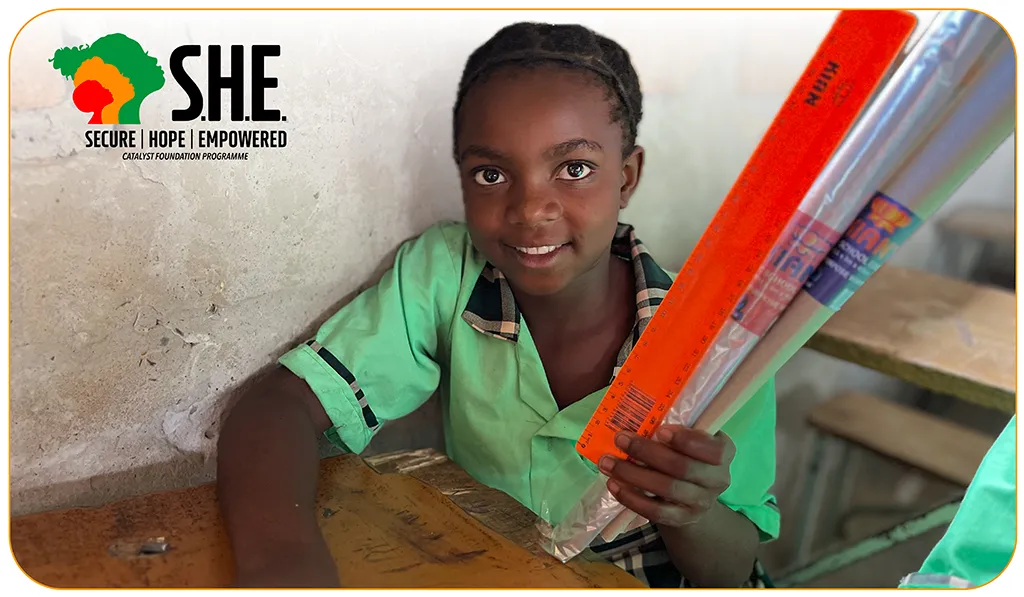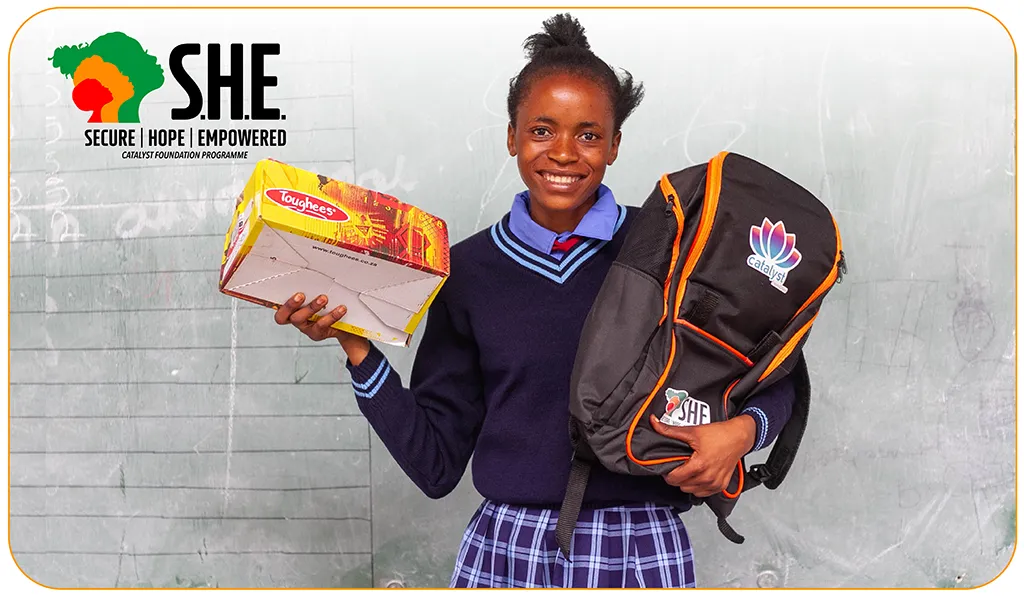Table of Contents
The bedrock of a thriving family and community is often found in the most fundamental element: food. Yet, for millions across Southern Africa, the daily question of where the next meal will come from is a stark and harrowing reality. Food insecurity remains a pervasive challenge in countries like Zimbabwe and Zambia, casting a long shadow over the lives of countless families, especially children. At Catalyst Foundation, we are confronting this crisis head-on, not with handouts, but by empowering caregivers to cultivate their solutions and build sustainable livelihoods.
The Harsh Reality: A Region Grappling with Hunger
The statistics paint a sobering picture. In Zimbabwe, a nation frequently impacted by climatic shocks, an estimated 6 million people in rural areas and 1.7 million in urban areas were projected to be food insecure during the peak of the 2024-2025 lean season (January to March) [World Food Programme, 2024]. UNICEF further indicates that roughly 2.7 million people will require urgent humanitarian assistance in 2024 due to drought and a worsening food crisis [UNICEF, 2024]. The country ranks 108th out of 127 countries on the 2024 Global Hunger Index, categorised as having a “serious” level of hunger [Global Hunger Index, 2024].
Similarly, Zambia faces a significant burden. Between October 2024 and March 2025, an estimated 5.8 million people (33% of the population) were projected to experience high levels of food insecurity, with 236,000 facing emergency levels of food insecurity [IPC & ACAPS, 2024]. Zambia’s 2024 Global Hunger Index score of 30.7 also places it in the “serious” category, ranking 115th globally [Global Hunger Index, 2024].
These alarming figures are not merely numbers; they represent millions of mothers worried about their children’s next meal, fathers striving desperately to provide, and children missing out on vital nutrition and education. The causes are multifaceted: recurrent El Niño-induced droughts, widespread crop failures, escalating food prices due to economic instability, and limited access to essential agricultural inputs all conspire to trap families in a vicious cycle of hunger and poverty.
Beyond Hunger: The Ripple Effect on Lives
Food insecurity is far more than just an empty stomach. Its devastating ripple effects permeate every aspect of family life. Children, especially, bear the brunt:
- Health: Chronic malnutrition leads to stunting, wasting, and weakened immune systems, making individuals susceptible to diseases caused by bacteria and worms found in unsafe water or food. It impairs physical and cognitive development, locking them into a cycle of poor health.
- Education: Hungry children struggle to concentrate in school, leading to poor performance, absenteeism, and ultimately, higher dropout rates. When families cannot afford food, children may also be pulled out of school to work or find food, perpetuating intergenerational poverty.
- Psychosocial Well-being: The constant stress of hunger can cause profound emotional distress, anxiety, and despair within families, eroding hope and stability.
This harrowing scenario is why interventions that address the root causes of food insecurity are so vital.
Cultivating Change: Catalyst Foundation’s Empowering Approach
At Catalyst Foundation, we believe in the power of sustainable solutions. Instead of merely providing temporary relief, we invest in empowering communities to build their resilience. Our approach focuses on equipping caregivers, primarily women, with the skills and resources they need to secure food for their families and even generate income.
Through comprehensive training programmes, we empower caregivers to:
- Learn Climate-Smart Agricultural Techniques: This includes teaching modern and traditional methods that promote water retention, soil health, and drought resilience, crucial in unpredictable climates.
- Cultivate Diverse Crops: Encouraging the growth of a variety of nutritious crops ensures a more balanced diet and reduces reliance on a single staple.
- Access Quality Seeds and Tools: Providing initial inputs removes a significant barrier for many families.
- Develop Market Linkages: Crucially, we connect caregivers with local markets, enabling them to sell surplus produce. This not only provides a stable income but also fosters entrepreneurial skills, dignity, and economic independence.
Stories of Transformation: A Glimpse of Victory
The impact of these initiatives is profound and deeply personal. We have witnessed countless transformations. Earlier this year, in Zambia, we introduced an innovative model called village banking to caregivers and parents. These community savings groups enable members to put money together monthly and borrow at very low interest rates, specifically for investing in income-generating activities. We are already seeing incredible results. For instance, one participant, who joined the savings group in January, borrowed K1000. With these funds, they invested in 2500 cabbage seedlings. The potential transformation is immense: if each cabbage sells for K10, the caregiver stands to make an impressive K25,000. This is a powerful illustration of how access to small, affordable loans can unlock significant entrepreneurial potential and dramatically improve household food security and economic well-being.
These stories underscore a powerful truth: when you empower a caregiver with the means to grow food and invest in their future, you don’t just fill a stomach; you ignite hope, restore dignity, and plant the seeds of a brighter future. Children, once listless from hunger, now attend school with renewed energy. Families, once burdened by worry, now share meals with gratitude and laughter. This shift from dependence to self-sufficiency is the real measure of success, making a tangible and life-altering difference.

Join Us: Partner in Cultivating Hope
The journey to end food insecurity is ongoing, but it is a journey we undertake with immense hope and determination. Every caregiver empowered, every garden planted, and every harvest reaped is a step closer to a future where no child goes to bed hungry.
We invite you to be a part of this transformative work. Your support can help us expand our training programmes, provide more essential agricultural inputs, and connect more caregivers to markets, enabling thousands more families in Zimbabwe and Zambia to cultivate their destinies.
Ready to make a lasting impact?
- Donate: Your generosity directly provides seeds, tools, and training, transforming lives. www.catalystfn.org/donate
- Partner: Collaborate with us to amplify our efforts and reach more communities. https://catalystfn.org/get-involved/partner-with-us/
Together, we can cultivate hope, grow resilience, and ensure every family has the fundamental right to food security, shaping a healthier, more prosperous future for Zimbabwe and Zambia.



